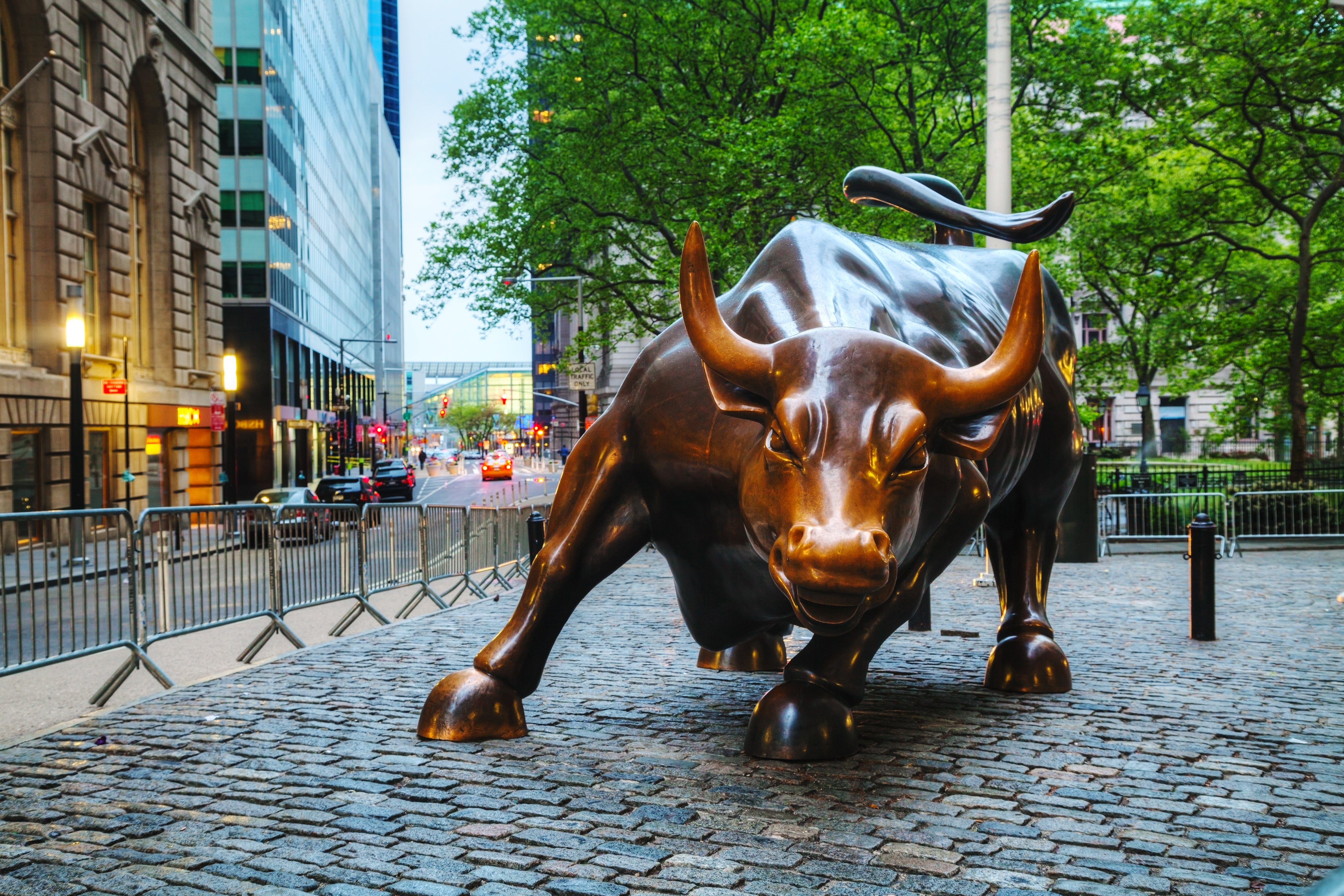“Bull markets are born in pessimism, grow on skepticism, mature on optimism and die on euphoria,” famed stock investor Sir John Templeton once wrote. On Wednesday, February 19, as the S&P 500 stock index closed at a record high for the 13th time since 2020 began, signs of euphoria were all around.
Shares of the as-yet-unprofitable electric car company Tesla, whose market capitalization now exceeds that of Ford and General Motors combined, rose over 6 percent that day. The shares had already doubled since the year began.
Tesla’s gains seemed almost paltry compared to those of Virgin Galactic, the space travel company led by Sir Richard Branson. With a few million dollars in revenue and a waiting list of several thousand brave souls eager to take an intergalactic journey, the company was suddenly valued at over $5 billion, its shares rising by more than 200 percent since the start of 2020. On that same day, China’s National Health Commission revealed an additional 1,749 cases of COVID-19 nationwide, but few took notice.
Then the weekend came, and with it word from Chinese president Xi Jinping that the situation was far more serious than he had realized. That news, combined with reports that the coronavirus had spread to Italy, were enough for market participants to quickly turn from euphoric buyers to panicked sellers. What followed was the biggest weekly selloff since the financial crisis in 2008. By week’s end, the S&P 500 index had fallen by nearly 12 percent as $3.6 trillion was wiped away from the value of the stock market.
Shares of many home-related companies fared far worse. RH, with its heavy dependence on a Chinese supply chain, saw its shares tumble 23 percent for the week. The company will report fourth-quarter and full-year earnings later this month.
Wayfair, which also imports the majority of its goods from China, suffered a 21 percent sell-off for the week. The company reported disappointing earnings numbers on Friday after having announced, two weeks earlier, that it was laying off 550 of its workers. Wayfair shares have fallen 63 percent from their high in March 2019 as the company now faces increasing pressure to turn a profit.
The high end of the market wasn’t spared from the sell-off, either. Shares of Knoll, the parent company of Edelman Leather and Holly Hunt, among others, saw its shares drop by 17 percent for the week. Herman Miller, parent company of Design Within Reach, had lost 14 percent by Friday’s close.
At the worst of the selling last week, the S&P 500 lost nearly 138 points on February 27—the worst one-day point drop in history. When put in context, however, you quickly find that on a percentage basis, that one-day drop doesn’t even make it into the index’s top 20 all-time sell-offs; the sheer size of the market’s valuation right now means that such a sizable drop, as a percentage of the overall market, is less seismic than headlines might lead you to believe.
Last week’s sell-off was so quick and extreme that it left the market heavily oversold. Like a tightly coiled spring, the market was ready for a dramatic rebound—and it came on Monday afternoon, in the form of the biggest one-day point gain ever for the S&P 500, which rose 136 points (or nearly 5 percent). It’s a reminder that with great uncertainty usually comes tremendous volatility.
Remarkably, there have been 26 market pullbacks of 5 percent or more in the 11 years since the financial crisis. Fears over the European debt crisis, the falling price of oil, Brexit, America’s trade war with China, the return of the Ebola virus, and even Greece defaulting on its debt obligations have all caused panicked selling similar to what we saw last week.
Each time, usually within a four-month period, the market has recovered and gone on to new highs. Could this time be different—will the market dip again? Of course. We are overdue for an economic slowdown, and even with the recent correction, share prices remain richly valued; there’s no reason to think we have seen the worst of this sell-off yet. No one can predict the full effect of the supply chain and inventory disruption wrought by the coronavirus, its possible impact on future earnings—and whether this scare will be what finally tips us into recession.
Stock prices have historically been a leading indicator of the economy’s health, and tend to decline well in advance of a meaningful economic slowdown. The fact that stocks were making new highs as recently as last week suggests dire predictions are likely premature. Then again, these are nothing if not extraordinary times.
____________
 Dennis Scully is the host of the weekly BOH podcast, where he explores the changes and challenges facing the interior design community through interviews with industry thought leaders, entrepreneurs and creatives. Scully was previously a business development consultant for major trade brands, and has held sales and marketing roles at Domino, Waterworks and Twill Textiles. In his Market Watch columns, Scully calls upon his background as an analyst and longtime securities trader as he explores the ins and outs of the home industry’s publicly traded businesses.
Dennis Scully is the host of the weekly BOH podcast, where he explores the changes and challenges facing the interior design community through interviews with industry thought leaders, entrepreneurs and creatives. Scully was previously a business development consultant for major trade brands, and has held sales and marketing roles at Domino, Waterworks and Twill Textiles. In his Market Watch columns, Scully calls upon his background as an analyst and longtime securities trader as he explores the ins and outs of the home industry’s publicly traded businesses.
Disclaimer: The author does not hold shares of the companies featured in this column at the time of the story’s publication. The views, thoughts and opinions expressed here belong solely to the author, and do not necessarily reflect those of BOH. The material is for informational purposes only, and does not constitute any form of financial advice.
Homepage photo: Shutterstock.com





























